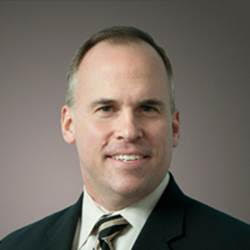Competitive in a hospital-heavy environment, successful ambulatory surgery centers will keep regulatory counsel close by to stay afloat in the changing healthcare legal landscape.
Ideally, ASCs will avoid the courtroom via negotiations or settlements, says Jeffrey Clark, JD, partner at Chicago-based McGuireWoods.
"Most clients we've dealt with, cases only go forward to trial because one of the parties is being highly unreasonable," Mr. Clark says.
Instead, Mr. Clark recommends ASC leaders bluntly speak with their counsel about costs and budgeting before the lawsuit begins.
"In terms of surviving [a lawsuit] financially, sometimes both sides will agree to an arbitration process and streamline the lawsuit and try to make it cheaper for both parties," suggests Mr. Clark.
Although the legal system has mostly kept pace with ASC growth in the last decade, Mr. Clark identifies some lagging areas.
Legislatively, some states have statutes that limit the ability to enforce physician non-competes. Courts may misconstrue the essence of physician non-competes in the ASC context and declare they are prohibited by the statutes.
"Based on public policy of putting the patients' rights ahead of economic rights of physicians, some states feel it is improper that non-competes would prohibit a patient from seeing a physician," says Mr. Clark.
Additionally, many judges are not acquainted with the nuances of specialty statutes, such as the Stark Law or Anti-Kickback Statute, which frequently take the stage in ASC disputes.
Specialized arbitrators will often present a qualified panel that possesses a stronger background in the statutory space.
ASCs will continue facing four major legal issues heading into 2017:
- Redemption disputes
- Non-compete disputes
- Partnership disputes
- Payer-provider disputes
Payer-provider issues will likely consume much of ASCs' energy in the legal arena in 2017. Payers have jumped on more out-of-network ASCs in billing disputes. Initially delayed in multiple motions, these cases' resolutions are coming to fruition.
"There will be varying [legal] decisions that will start to give one side or the other, ASCs or payers, feeling like they have momentum in these cases," explains Mr. Clark.
Additionally, 2017 will see no shortage of hospital and ASC friction. As hospitals continue to aggressively employ physicians and physician groups, non-compete disputes will remain abundant.
"It's also caused disputes in ASC partnerships because the hospital system's employment of physicians, when the hospital is a partner in the ASC, has caused friction among partners," adds Mr. Clark.
Although ASCs and hospitals face similar legal issues, hospitals sometimes wind up in a precarious situation when dealing with physician non-compete cases. In these disputes, they could be triggering the violation of ASC non-competes by employing these physicians.
"Hospitals utilize physician non-competes regularly," explains Mr. Clark. "They don't want to create a case law that invalidates non-competes in the health sector, so they have to try to beat a non-compete case in another way."
81982919_1
Recent articles:
2 AmSurg centers participate in ASC Quality Measures; SCA, Virtua Health partner with Bergen-Passaic Cataract Laser and Surgery Center & more — 5 key updates on ASC companies
Amkai tops Black Book's survey of ASC EHR vendors in 2016
Global healthcare IT market to total nearly $228.8B by 2020: 4 things to know

